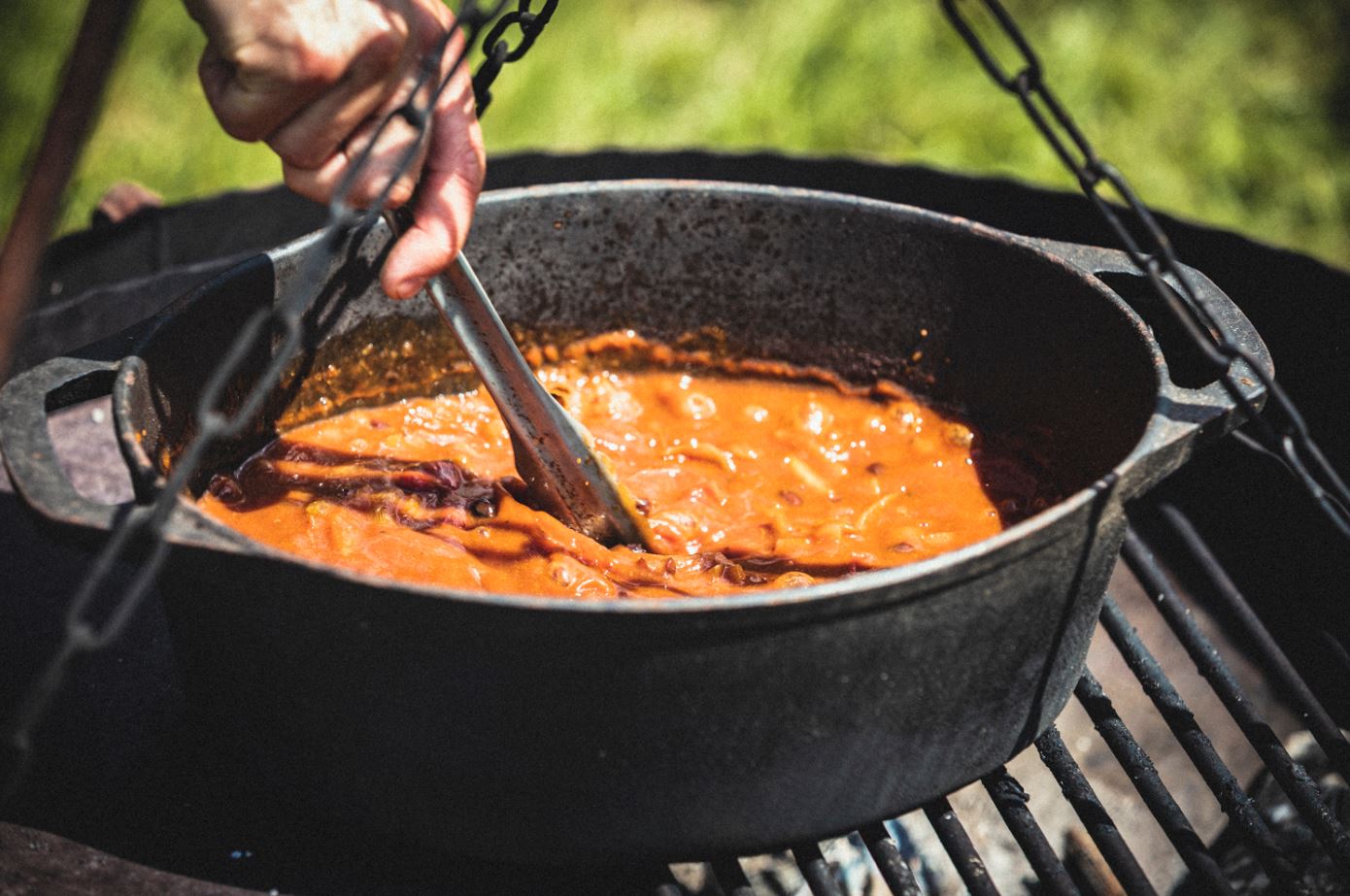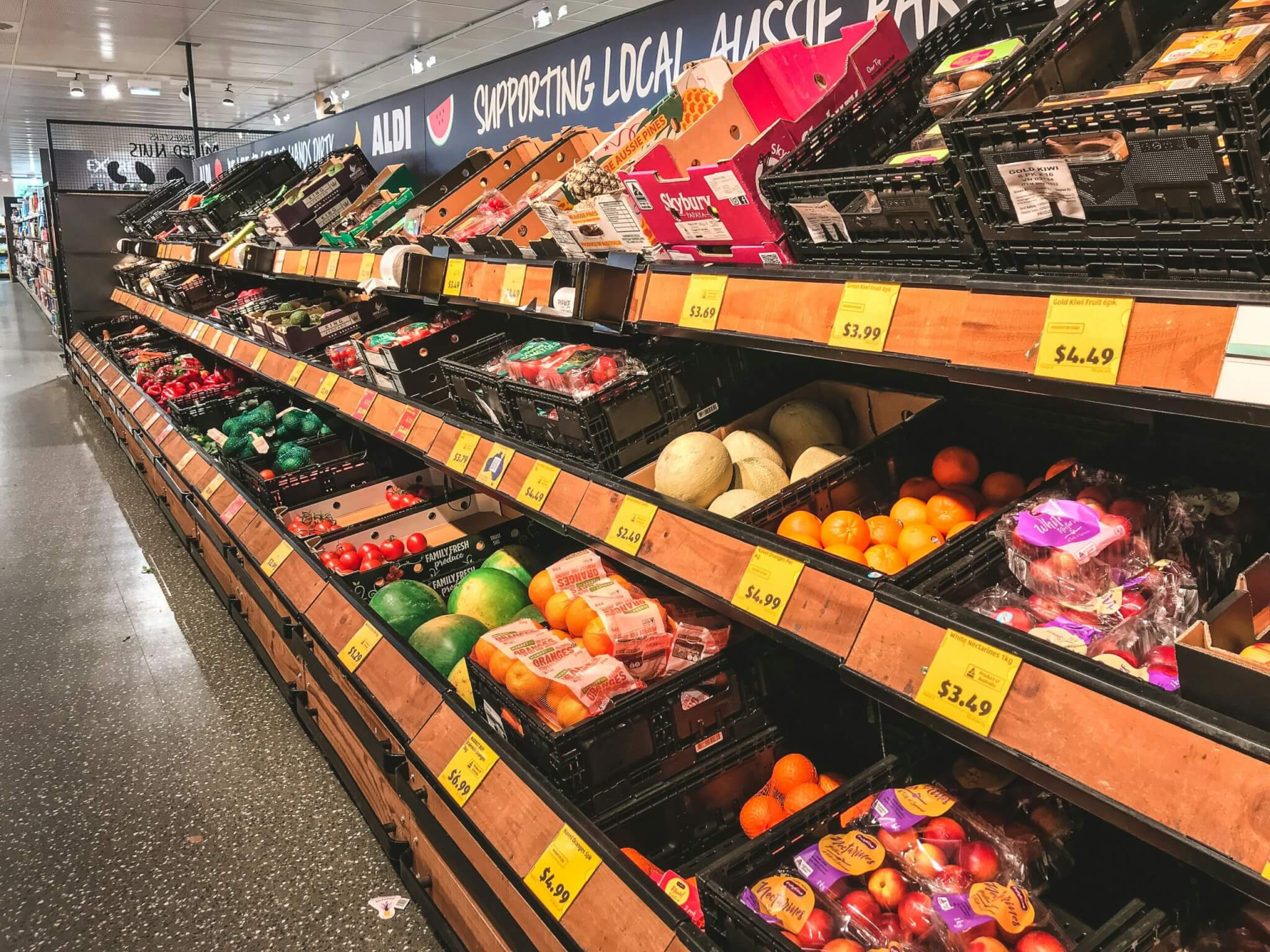‘I can’t afford good food’ is a common and understandable statement I hear frequently among peers. At the end of the month it is tempting, and frequently necessary, to cut corners on food bills to balance our outgoings. Often this will lead to cutting out fresh and organic produce in favour of convenience and price. I’ve done it myself – the thrill of ‘yellow sticker shopping’, a 99p pizza and dinner sorted.
In 1957, we spent 33 per cent of our household income on food, a nice round one third of our income. In 2018, this figure was 10 per cent.
There are myriad reasons one could argue why reducing our weekly outgoings to 10 per cent has had a positive, transformative impact on our standard of living, but I’m calling your bluff; our health, wealth and happiness are spiralling downwards and we’re all looking for someone, or something, to blame.
So why did we suddenly start spending so little on food? In essence, we’ve had to rebalance our budgets to cater for higher rents, increasing fuel prices and societal pressures around consumerism and materialism. This has forced down our allocated budget on food and drink to record lows.

Looking again at last year’s figures: our average weekly household expenditure in the UK was £572.60. Of this figure, £60.60 was spent on food and non-alcoholic drinks (10.7 per cent). Broken down even further, only £4.20 was spent on fresh vegetables compared to £6.00 on biscuits, cake, buns and chocolate.
Forget for a moment the statistic of spending 10 per cent on food and drink and ponder what brings us happiness, fulfilment and joy. The simple pleasure of using our hands, turning simple ingredients into something magical; learning, creating, sharing. Preparing a good meal has everything we need to achieve a higher state of health and wellbeing.
Some of my most precious childhood memories revolve around a sunday roast; all the family sat round the table, everyone helping scrubbing the veg – even with the beef a bit dry, roasties a bit burnt – they are memories that stick.
I fear without significant change we could be sleepwalking into an Americanised, dystopian world with our food and drink consumption. Everything mass produced by corporations, plastic wrapped, soulless and tasteless.
There is a huge sense of wellbeing that comes from caring more about food and spending time cooking and eating it, but valuing food in this way also means we are more likely to spend more on ethical supply chains, higher welfare meat, organic food or direct to farmer models – if we have the means. Reconnecting with what we eat could also mean sustainability for our food systems.

Can we simply steal from the Italians? They see food as their identity, a friend and even a work of art. In doing so, it filters into the minutiae of their culture. Americans, however, seem to view food as an enemy. Food is seen as the catalyst to obesity, diabetes, heart disease and the cause of an epidemic, rather than the solution.
So how do we make a change that matters? It is idealistic and fanciful to assume we can all suddenly spend an extra 23 per cent of our earnings on food. But a simple mindset change and recognising the true value of food could help rebalance how we spend our hard-earned cash.
Practical (and flavourful) guidelines to rebalance your food bills:
- Buy offal
- Slow cook
- Buy root veg; cheaper to buy – roast low and slow
- Season liberally, it can transform meals
- Plant tomatoes
- Make soup
- Buy (or make) good stock
- Cut out food that your grandmother wouldn’t recognise
Practical (and liberating) guidelines to rebalance your finances:
- Turn off your heating! Blankets are far cosier
- Dominate your bills: shave, cut, question and reduce
- Don’t buy things on finance, buy what you can afford outright
- Save a bit for a rainy day
- Question your purchases: will this product add value to my life?
- Repair clothes rather than replace
- Stop consuming – start creating!












Great article. Since moving to this area of the country I have reduced my grocery bill by buying a veg box 2xmonth instead of buying at the grocery store, where big ag offers processed foods that would easily surpass my expense on fresh. I don’t know exactly what’s coming in the veg box, which makes working with it fun. The products last longer with some food prep. Its tastier, and because I’m eating better, my body is satiated, so I’m not looking for snacks. Result – lower monthly grocery bill, desirable weight loss, sleeping better & now I’m teaching others to do the same. Using food as medicine, preventing and possibly reversing some medical conditions which will save the NHS money. This is not taught widely from our medical professionals, yet they can have great influence. I appreciate you writing this piece. I hope others glean from it and make changes, one family at a time.
This is a good comment – especially the point about food as medicine. I sincerely believe good food is the key to good health.
This was a very good article, but I can’t help pointing out that the postwar governments’ attitudes to subsidies plus effects of joining the EEC, later the EU, has encouraged over production, factory type farming with disastrous results for us, the earth and all the poor animals who no longer live anything like a normal life. I grew up in a family which grew some food in the back garden,includin apples,raspberries,spinach,rhubarb and sometimes even branched out to things like sweetcorn! I still remember the ecstasy of my first ever buttery,homegrown corn on the cob.Now, living on the State Pension and on my own , I have to shop very differently from when I was young and cooking for several people, not just me. Shopping for one is expensive; if you buy large amounts there’s wastage plus boredom,but I try to buy from local businesses such as Riverford and local shops where the provenance of meat and veg is known and respected,BUT, it does take most of my Pension and Pension Credit. I hardly ever buy a joint, or steak,I’ve always used offal and cheap cuts,in fact, the only thing I like about winter is making nice big casseroles and stews and lots of soup! we all have to learn to eat and shop in a different way, I think.Living in Devon at least makes it possible.
I agree with your comment. I became vegetarian many years ago because I disagreed with the principles and practises of factory farming. Like you we rely on our state pension so have to be frugal. However, being self sufficient, to a great extent, is a cheaper and healthier way of life. I also believe this country can benefit from self sufficiency once we leave the EU and begin producing our own food and not relying on imports.
This is a good article and I agree that healthy eating should be a top priority. I also enjoyed the comments – particularly from Foodcoachlady as I am a very keen follower of Ayurveda which promotes eating for type and food as medicine. I have been vegetarian for 45 years and my husband and I grow our own food on our allotment. We have apple trees and a very small greenhouse in the garden in which we start off seeds for planting out – and we grow tomatoes, cucumber, aubergines and peppers. All this is subsidised by filling in any gaps with Riverford food, plus much more reliance on Riverford during the winter months. I also make my own yogurt and bread – and I make wine from berries grown on the allotment. I feel that although our diet is beneficial to our health we also derive satisfaction and contentment from our lifestyle.
Great article, especially the idea of food becoming ones identity. The mindfulness and joy in preparing a meal for family and friends is something to cherish and needs to be worked at like everything but once there it is a lovely thing
A really nice article but, please, enough with the simplistic America bashing. I’m a Brit living in the US the last 40 years and believe me, I eat very healthily and well with no effort, particularly here in New Mexico, a major agricultural state that may be poor but is rich in healthy food and cuisine. For example, it has always bee easy to find package-free stores here to fill up on bulk goods, and I am astonished every time I am back in the UK – once a year minimum – that everything is packaged, from pulses and flour to nuts. Now that one Waitrose store in Oxford has introduced package free as a trial, suddenly the UK is trumpeting that it has invented a wonderful and eco way of life – take that, US! My farmers market here in Santa Fe is in the top 10 in the nation. Our food bank offers fresh organic produce, local sourdough bread, and green chile, our mainstay, to users. Even mainstream grocery stores have organic sections that are expanding and are price sensitive – even Walmart! We are not alone; there are many such communities everywhere nowadays. I know that everyone is scared of the US-UK trade deal that seeks to export the worst of this country’s corporate Big Food junk, from chlorinated chicken to beef, and quite rightly so. It is good not to be so broad brush in discussions about what constitutes “Americanized” food, though, because you will be astonished if you ever visit this country and visit stores and restaurants. Love Riverford and follow avidly what you are doing there, but speaking as a longtime author and editor myself, please let’s be a bit more balanced and also avoid generalizations that are no longer true.
Hi Nicky, that’s a really interesting and fair comment, thanks for taking the time to write in.
What you’re describing sounds very idyllic but would it be fair to say that it is still a very small minority of Americans that shop at markets and eat a healthy balanced diet? I’ve spent a cumulative total of about a year in the US, travelling through the deep south, Arizona and a then couple of months on the West Coast- my perception wasn’t aligned with what you’ve described, admittedly this was about 5-10 years ago so hopefully things are moving in the right direction? My fear is the power that corporations can (and will) exercise to prevent small, localised food movements occurring – on both sides of the pond.